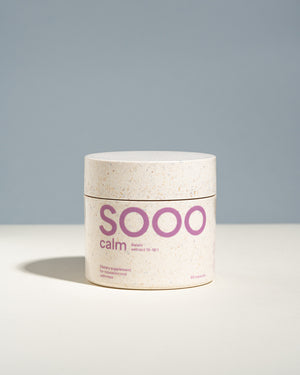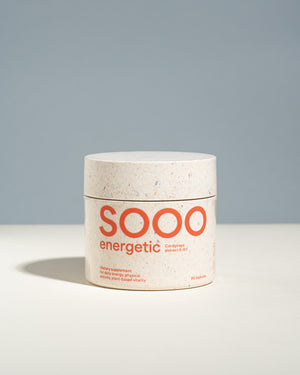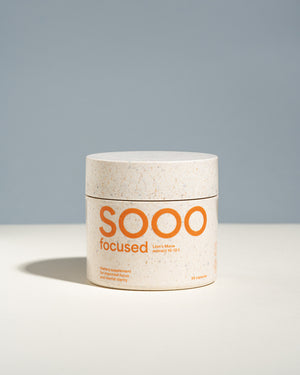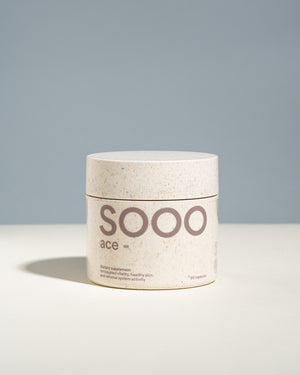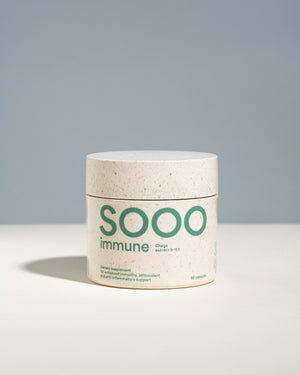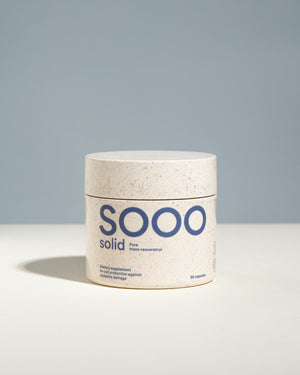Reishi - a mushroom of dreams that eases anxiety and stress
Let's embark on an enlightening journey into the mystical world of Reishi – the revered mushroom with a plethora of health-enhancing properties. Join us as we unravel the secrets behind its ability to calm the mind and invigorate the body, offering a holistic sanctuary for vitality and balance.
Improving Communication of Immune System
Research has found that Reishi (Ganoderma lucidum) isn't just any mushroom – it contains so many benefits for your immune system.
Reishi helps keep your immune function in check, preventing it from going into overdrive. The special compounds in Reishi, called polysaccharides, seem to have a knack for modulating cytokines, which are like messengers in your immune system.
Reishi a fantastic ally for your immune system, keeping things in balance and helping you stay well.
Calming Down Allergic Reactions
Various studies show that Reishi can be a game-changer in calming down allergic reactions.
Experiments on guinea pig lung tissue sensitized with substances like ovalbumin and tetanus delivered impressive results. Reishi effectively put the brakes on the release of histamine and other allergy-related substances [1].
Sooo, Reishi has wonderful abilities to stop the drama caused by allergies.
But that's not all – Reishi is a versatile ally. It showed promise in reducing skin swelling in rats [1]. Reishi even proved its healing prowess in rats with stomach lesions, soothing them and partly thanks to its ability to control the expression of certain genes [2].
Reducing Inflammation
Reishi also has anti-inflammatory effects. A study with mice found that Reishi triterpenoid extracts significantly reduced airway hyper-responsiveness, a key factor in allergic asthma. It played a regulatory role in the immune response, reducing levels of inflammatory mediators [3].
In simpler terms, Reishi seems to be telling your immune system to chill out, especially in conditions like asthma.
Helping to Fight Anxiety and Depression
If you're having a tough time, let's talk about how Reishi, a fantastic mushroom, that could offer some potential relief and encouragement.
Depression, a mood disorder that brings on persistent low mood, slowed thinking, and other distressing symptoms, is a tough battle. Yet, Reishi emerges as a potential source of support.
Scientists found that a special extract from Reishi called MAK (water-soluble extract of G. lucidum mycelia culture medium) has some antidepressant-like qualities. In tests, it reduced immobility time in the forced swim test, showing it might help improve mood [4]. No worries, it didn't mess with the little creatures' activity levels in the open-field test, so it's not making them hyper.
The secret to Reishi's mood-boosting power might be its ability to play nice with serotonin receptors (that's the 5-HT2A receptor, to be precise) [4]. It's like Reishi is giving these receptors a friendly nudge, which seems to help in lifting spirits.
And get this – studies also found that Reishi's mycelium extract has a mood-lifting effect similar to fluoxetine, a common antidepressant. In a real-world test with breast cancer patients on therapy, a Reishi supplement (Ganoderma Lucidum Spore Powder) significantly reduced scores related to cancer-related fatigue and feelings of anxiety and depression [5].
Sedative and Hypnotic Effects Preventing Insomnia
For ages, people in Asia have turned to Reishi, to find a sense of calm and tackle sleep issues. This magical mushroom has a reputation for easing restlessness, palpitations, and sleeplessness — so that you would wake up well rested and ready for another day.
Imagine this: a few minutes after taking Reishi, you start feeling relaxed. Your body unwinds, and you might notice a drop in activity and muscle tension. It's like a gentle lullaby for your senses.
Here's where it gets interesting: Reishi seems to team up with pentobarbital sodium, a common anesthetic, to make its effects even better. It's like they're dance partners, with Reishi allowing you to use less pentobarbital sodium for the same sleepy outcome [6]. Less is more, right?
The Science of Sleep
The science behind Reishi calming effects involve something called the benzodiazepine receptor, a target for typical sleep medications. In studies with mice, Reishi extract didn't just make them fall asleep faster; it also increased the total sleep time. And the cool part? It didn't mess with the important REM (rapid eye movement) sleep, which is when dreams happen.
But wait, there's more to the story. Reishi might be blocking the reuptake of a neurotransmitter called GABA (gamma-aminobutyric acid), contributing to its hypnotic effects. It's like the mushroom is saying, "Hey, let's keep that calming GABA around for longer."
And that's not all – Reishi has a way of extending the peaceful vibes. In different formulations, whether it's spore powder, extract, or granules, it helps reduce activity, cut the time it takes to fall asleep, and increase the overall sleep duration. It not only helps you nod off but also protects you from disruptions like convulsions.
Reishi is a Real Sandman
And guess what? Reishi's connection with sleep isn't just about the immediate bedtime story. It seems to involve the immune system with some teamwork happening with cytokines like TNF (tumor necrosis factor) [7]. These little messengers, especially TNF, seem to be a crucial part of the journey to dreamland, making Reishi a sleep-time friend with multiple talents.
Sooo, if you're looking for a natural way to relax and wake up feeling refreshed, consider Reishi – the ancient sleep secret that's still making waves today. Sweet dreams!
Other Therapeutic Uses
Liver support, cancer (especially breast and prostate), hypertension, rheumatoid arthritis, neuro-protective, anti-ageing, anti-inflammatory, antiviral (including HIV), antimicrobial, hypotensive effect, cardiotonic, immunomodelling, nephrotonic, hepatoprotective, neurotonic, anti-asthmatic.
Key Components
Other components
Polysaccharides Glycoproteins (lectins) Phenols Steroids Triterpenoids Nucleotides Fatty acids Vitamins Minerals
Several researchers have carried out the extraction of metabolites from G. lucidum using various solvents, namely, methanol, chloroform, acetone, or water [2,3]. Ganoderma lucidum extracts contain secondary metabolites such as phenols, steroids, terpenoids, nucleotides, glycoproteins, and polysaccharides [4]. Polysaccharides (ganoderans) and triterpenes (ganoderic acids, ganodermanondiol, ganodermanontriol, ganolucidic acid B, and lucidumol B) are the major bioactive chemical constituents [5,6].


